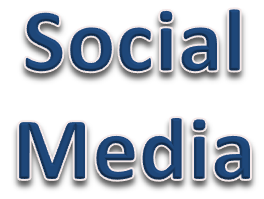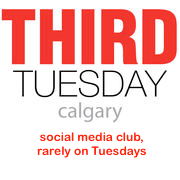In the mid-90s, I would open Microsoft Word and Excel at the beginning of every workday, knowing that I would spend most of my day using these applications. That ended some time ago.
Today, I open the Chrome Web Browser as soon as I boot up my computer. It’s also the last thing I close before I shut down at the end of the day. So, what do I use it for? Well, the tabs that open by default at the beginning of the day describe pretty well why the browser is my mainstay tool.
I use my browser for the four major things I do every day: publishing, measurement and analysis, knowledge gathering, and community.

Publishing
I open a series of tabs for each of the blogs that I contribute to: ProPR.ca, Inside PR, Social Mediators and Corum. This helps me to focus first thing each morning on writing. And I find I am most able to write at the beginning of my day when I still can close more door and before I open any other applications that might prove a distraction – especially email. (I keep Outlook closed through most of the day, opening it only when I have a block of low energy time that I want to use for low involvement work.)
In addition, I have a tab for the Admin panel that 76design developed to enable me to curate the posts that go on the home page of the Thornley Fallis Website.
Measurement and Analysis
I look at several tabs at the beginning of each day: PostRank, Google Analytics and Feedburner. These give me a quick indication of the engagement and traffic on the various blogs I contribute to. Of these, I’m most focused on PostRank. Traffic to my sites is nice. But what I really strive for is content that engages people enough that they will want to act upon it – share it, comment or even just follow a link.
Knowledge gathering
Social media has made it possible for experts to self publish in a form that is readily available and shareable. I find that most experts I’m interested in say their piece on a blog or on Twitter. So I subscribe to their RSS feeds and Twitter streams. And so I’ll go to Google Reader and Twitter (I use both Hootsuite in my browswer and Tweetdeck on my desktop) when I have the time to gather new knowledge and news of what’s happening in my world.
There’s one more knowledge gathering tab that I’ve kept open for the past few months – Quora, the question and answer site. I’ve answered questions and posted questions of my own. This could be a great resource if the questions and answers broaden beyond the tech roots of the early adopters. The jury’s still out. However, I go here late in the day when my writing and creative work is done and I want to be stimulated with new perspectives.
Community
We use Present.ly as our “behind the firewall” team collaboration software. I’ll keep this open throughout the day so that I can respond to requests and queries from my work teams.
I use Meetup.com as the online host for the Third Tuesday events. I’ll check this daily when we have upcoming events.
Twitter. Twitter. Twitter. My main social network, as well as a great knowledge gathering site. I’ll check into Twitter several times a day. Then sign out when I’m done. Must avoid distraction.
Yes, I open LinkedIn and Facebook at the beginning of each day. And then I mostly ignore them. Both seem designed to trap me in a mindless attention loop. Too much random noise.
Focus on one thing at a time
A final note. Even though I open several tabs at the beginning of the day, I close everything I am not using whenever I am trying to create content. I find it takes me some time to get into the flow of creation. So, I don’t want any distractions. No email. No pop up alerts. No skype. No telephone. I just try to focus on the one thing I am trying to create.
Your turn
What about you? Do you keep your browser open through the day? What tabs do I have set up to open automatically at the beginning of each day? How do you maintain your focus?
 As I entered the airport this morning, I passed a couple of pilots who were standing outside in the cold, smoking. Judging from the desperate way they were dragging on those cigarettes, they were hooked, really hooked, on tobacco.
As I entered the airport this morning, I passed a couple of pilots who were standing outside in the cold, smoking. Judging from the desperate way they were dragging on those cigarettes, they were hooked, really hooked, on tobacco.

 For the past two years, people interested in exploring the potential of social media have gathered at
For the past two years, people interested in exploring the potential of social media have gathered at 



